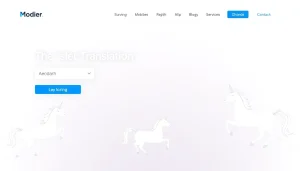Understanding the Level 5 Diploma in Leadership and Management for Residential Childcare
The Level 5 Diploma in Leadership and Management for Residential Childcare is a pivotal qualification designed for professionals looking to advance their careers in the childcare sector. This comprehensive diploma not only provides theoretical knowledge but also practical skills that empower individuals to effectively lead teams and manage childcare facilities. For those seeking level 5 diploma in leadership and management for residential childcare answers, understanding the core components of the program is essential.
What is the Level 5 Diploma?
The Level 5 Diploma is an advanced qualification that typically encompasses the leadership and management skills required in a residential childcare setting. This diploma is aimed at individuals who aspire to take on managerial roles and is often seen as a critical stepping stone toward achieving higher positions within the childcare sector. The curriculum is designed around the standards set by the Children’s Workforce Development Council (CWDC), ensuring that it meets the needs of the sector and regulations related to child welfare and safety.
Importance of the Qualification
Obtaining a Level 5 Diploma is vital for career progression in childcare management. It not only enhances the credibility of the individual but also equips them with the necessary competencies to lead organizations effectively. With increasing regulatory requirements around child safety and welfare, the qualification offers assurance that practitioners are trained to meet these challenges head-on. Moreover, it facilitates personal growth, fostering skills such as conflict resolution, strategic planning, and performance management.
Key Learning Outcomes
Participants in the Level 5 Diploma program can expect to achieve various learning outcomes, including:
- Understanding child development and the implications for management in childcare settings.
- Developing skills in strategic decision-making and organizational leadership.
- Implementing and managing policies that ensure safeguarding and protection of children.
- Gaining insights into effective team management and staff development.
- Establishing strong communication channels with stakeholders, including parents, staff, and regulatory bodies.
Core Units and Their Relevance
Mandatory Units Overview
The diploma comprises both mandatory and elective units. The mandatory units play a crucial role in building the foundation of knowledge required for effective leadership in childcare settings. Common mandatory units include:
- Lead and Manage a Team: This unit covers strategies for effective team dynamics and leadership practices, focusing on motivation and productivity.
- Safeguarding and Protecting Children: Here, participants learn about legislation, policies, and best practices to ensure children’s safety and well-being.
- Managing Resources: This unit teaches professionals to efficiently manage both human and material resources to ensure optimal operations in childcare settings.
Elective Units Explained
Elective units allow candidates to tailor their qualifications according to their career aspirations or areas of interest. Examples include:
- Practice in Residential Childcare: Focusing on practical applications and strategies within residential settings.
- Facilitate Effective Support for Children: Concentrating on interventions and practices that support children’s specific needs.
- Working with Families and Other Professionals: Emphasizing the importance of collaboration with families and other professionals in the childcare sector.
Real-World Applications
The knowledge and skills derived from the Level 5 Diploma are influential in various real-world applications. Graduates are equipped to:
- Implement policies that align with the best interests of children and adhere to legal requirements.
- Handle crises effectively within childcare environments by utilizing learned conflict resolution strategies.
- Ensure a high standard of service delivery through continuous monitoring and quality assurance mechanisms.
Assessment Methods for Level 5 Diploma
Understanding the Assessment Process
Assessments typically make up a significant component of the Level 5 Diploma. These assessments may be theory-based assignments, practical demonstrations, and reflective practice logs. The aim is to evaluate not only the grasp of theoretical concepts but also the application of these concepts in professional settings.
Tips for Success in Assessments
To excel in assessments, it is beneficial for candidates to:
- Stay organized: Keep all materials organized to facilitate easy referencing during assessments.
- Engage in peer study groups: Collaborative learning can enhance understanding and retention of material.
- Seek feedback: Always seek constructive criticism on assignments to improve future submissions.
Common Challenges and Solutions
Candidates may encounter various challenges during their learning and assessment journey, such as:
- Time Management: Balancing work, study, and personal commitments can be daunting. Solution: Develop a structured schedule that allocates specific times for study and breaks.
- Understanding Complex Concepts: Some may struggle with theoretical aspects. Solution: Utilize supplementary resources like workshops and online courses to reinforce learning.
- Assessment Anxiety: The pressure of assessments can lead to anxiety. Solution: Practice relaxation techniques, and approach assessments with a positive mindset.
Resources for Successful Completion
Recommended Study Materials
To successfully navigate the Level 5 Diploma, various study materials can be helpful, including:
- Textbooks: Recommended readings focus on management theories, child development, and relevant legislation.
- Online Resources: Websites and courses that offer modules related to childcare management.
- Professional Journals: These provide up-to-date research and findings in the childcare sector.
Online and Offline Support
Support can be found both online and offline to assist learners in their journey:
- Online Forums: Participating in online communities can help candidates share ideas and problem-solve collectively.
- Study Groups: Forming or joining local study groups can provide motivation and accountability.
- Mentorship: Seeking guidance from experienced professionals can offer insights and practical advice.
Community and Networking Opportunities
Engaging with the community provides invaluable networking opportunities:
- Conferences: Attending childcare seminars and conferences can help individuals connect with industry experts.
- Local Networking Events: Participating in gatherings within local childcare agencies can enhance local relationships and knowledge sharing.
Benefits of Completing the Level 5 Diploma
Enhanced Career Opportunities
Upon completing the Level 5 Diploma, individuals can expect a notable enhancement in career prospects. Having this qualification sets candidates apart in a competitive job market, opening doors to positions such as:
- Residential Care Manager
- Deputy Manager in Childcare Settings
- Quality Assurance Manager
Development of Leadership Skills
The diploma is designed to foster leadership skills critical in managing residential childcare facilities. Graduates will find themselves well-equipped to:
- Lead diverse teams effectively.
- Create a culture of high performance and motivation.
- Adapt leadership styles based on team needs and organizational goals.
Transforming Childcare Practices
Lastly, this diploma positions graduates to enact positive changes in their respective organizations. They become catalysts for transforming childcare practices, ensuring that the highest standards of care and protection for children are maintained.
In conclusion, the Level 5 Diploma in Leadership and Management for Residential Childcare is a comprehensive program that provides crucial knowledge and skills for the future of professionals in the childcare industry. As society’s expectations grow, the demand for qualified leaders in the residential childcare sector will only continue to rise. Therefore, pursuing this diploma is not only a commitment to personal and professional development but also an investment in the future of quality childcare.








